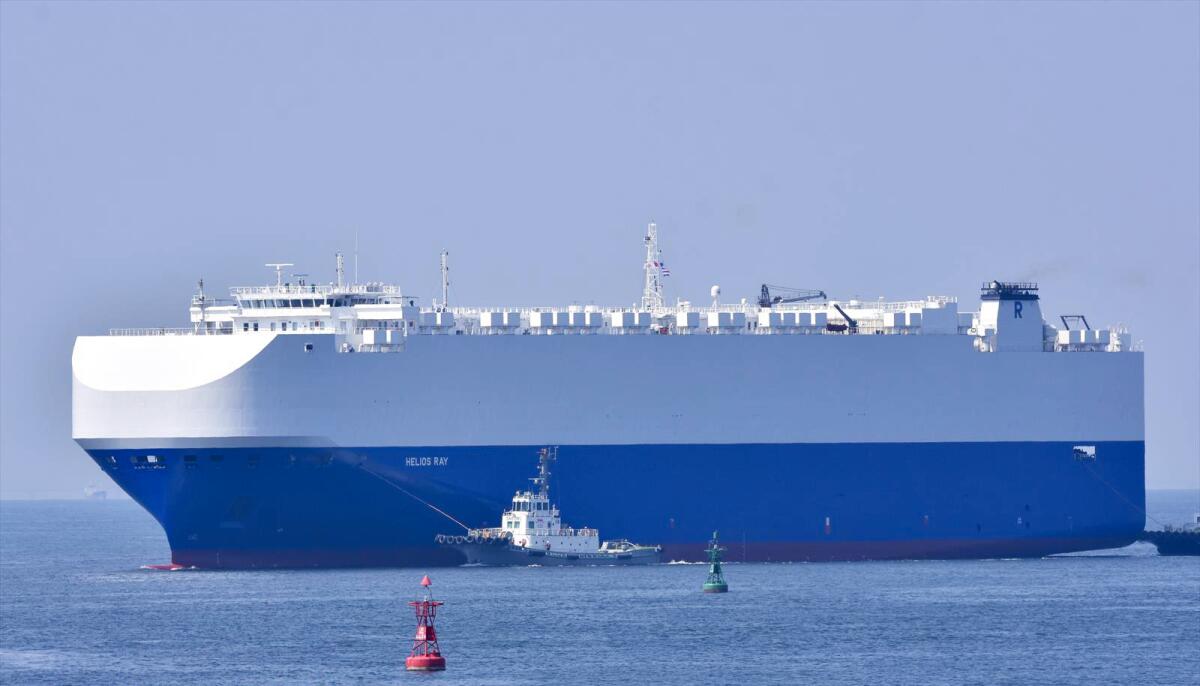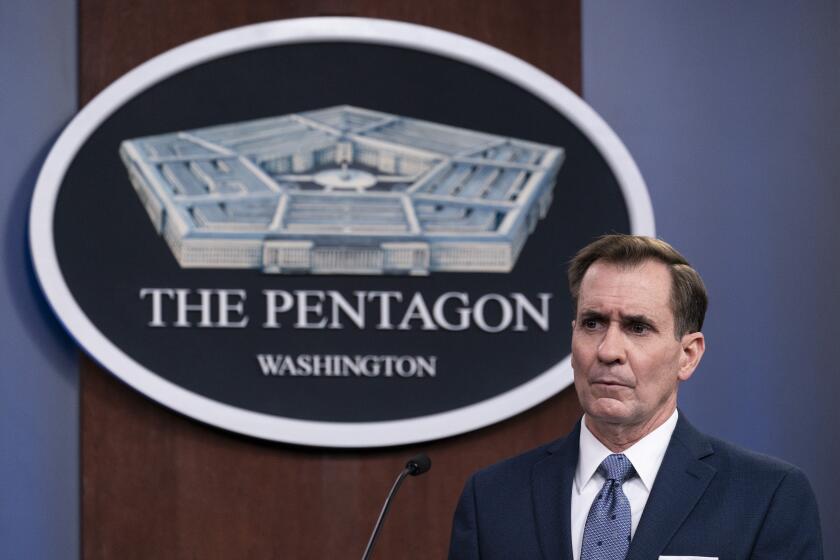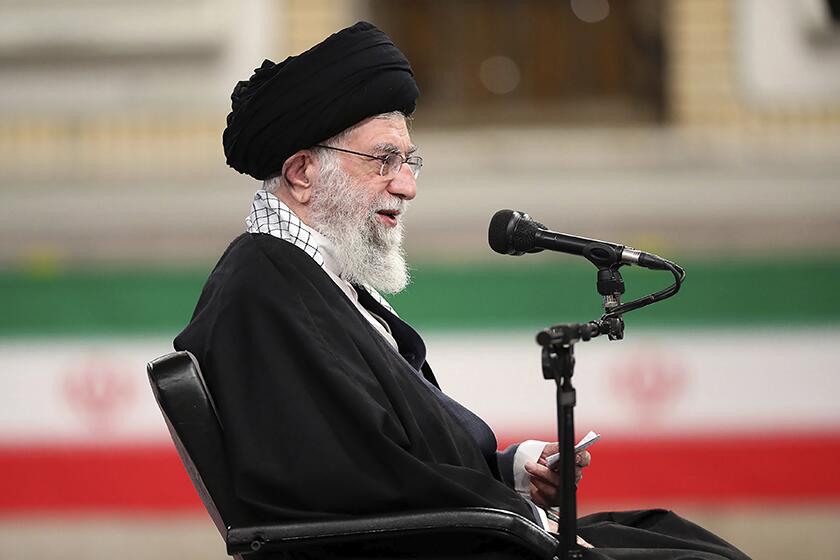Netanyahu accuses Iran of attacking Israeli-owned cargo ship

- Share via
JERUSALEM — Israeli Prime Minister Benjamin Netanyahu on Monday accused Iran of attacking an Israeli-owned ship in the Gulf of Oman last week.
Without offering any evidence for his assertion, Netanyahu told Israeli public broadcaster Kan that the mysterious explosion Friday, which further spiked security concerns in the region, “was indeed an act by Iran — that’s clear.”
“Iran is the greatest enemy of Israel. I am determined to halt it. We are hitting it in the entire region,” Netanyahu said.
Iran promptly dismissed the allegations.
The blast struck the Israeli-owned MV Helios Ray, a Bahamian-flagged roll-on, roll-off vehicle cargo ship, as it was sailing out of the Middle East on its way to Singapore. The crew was unharmed, but the vessel sustained two holes on its port side and two on its starboard side just above the waterline, according to American defense officials.
The ship came to port in Dubai for repairs Sunday.
U.S. airstrike targeting Iranian-backed militants in Syria was meant as a message from President Biden. What message Tehran took away is unclear.
Iran has sought to pressure the U.S. to lift sanctions on Tehran as the Biden administration considers option for returning to negotiations with Iran over its nuclear program. Biden has said repeatedly that the U.S. would return to the nuclear deal between Tehran and world powers — which Biden’s predecessor, President Trump, withdrew from in 2018 — only after Iran restores its full compliance with the accord.
The explosion on the Israeli-owned ship last week recalled the tense summer of 2019, when the U.S. military accused Iran of attacking several oil tankers in the Gulf of Oman with limpet mines, designed to be attached magnetically to a ship’s hull. The Gulf of Oman leads through the narrow Strait of Hormuz, a vital passage for the world’s oil supplies. Tehran has denied accusations that it was behind the limpet mine attacks.
It remains unclear what caused Friday’s blast on the Helios Ray. The vessel had offloaded cars at various ports in the Persian Gulf before the explosion forced it to reverse course. Over the weekend, Israel’s defense minister and army chief both indicated that they held Iran responsible for what they said was an attack on the vessel.
Iran “strongly rejected” Netanyahu’s statement Monday. At a news briefing, Foreign Ministry spokesman Saeed Khatibzadeh said Netanyahu was “suffering from an obsession with Iran” and described his allegations as “fear-mongering.”
The Biden administration took its first step towards returning to the Iran nuclear deal by offering to join talks with Tehran and European sponsors of the agreement.
Without elaborating, Khatibzadeh also accused Israel of taking “suspicious actions in the region” against Iran in recent months to undermine the 2015 nuclear deal and vowed Iran would respond.
“Israel knows very well that our response in the field of national security has always been fierce and accurate,” he said.
Overnight, Syrian state media reported a series of alleged Israeli airstrikes near Damascus, saying air-defense systems had intercepted most of the missiles. Israeli media reports said the alleged airstrikes were on Iranian targets in response to the ship attack.
Israel has struck hundreds of Iranian targets in neighboring Syria in recent years, and Netanyahu has repeatedly said Israel would not accept a permanent Iranian military presence there. Iran and its Lebanese proxy, Hezbollah, have provided military support to Syrian President Bashar Assad in his country’s civil war.
News Alerts
Get breaking news, investigations, analysis and more signature journalism from the Los Angeles Times in your inbox.
You may occasionally receive promotional content from the Los Angeles Times.
The Israeli military declined comment.
Iran also has blamed Israel for a recent series of attacks, including another mysterious explosion last summer that destroyed an advanced centrifuge assembly plant at its Natanz nuclear facility and the killing of Mohsen Fakhrizadeh, a top Iranian scientist who founded the Islamic Republic’s military nuclear program two decades ago. Iran has repeatedly vowed to avenge Fakhrizadeh’s killing.
“It is most important that Iran doesn’t have nuclear weapons, with or without an agreement. This I also told to my friend Biden,” Netanyahu said Monday.
Iranian threats of retaliation have raised alarm in Israel since the Jewish state signed normalization deals with the United Arab Emirates and Bahrain in September.
More to Read
Sign up for Essential California
The most important California stories and recommendations in your inbox every morning.
You may occasionally receive promotional content from the Los Angeles Times.















